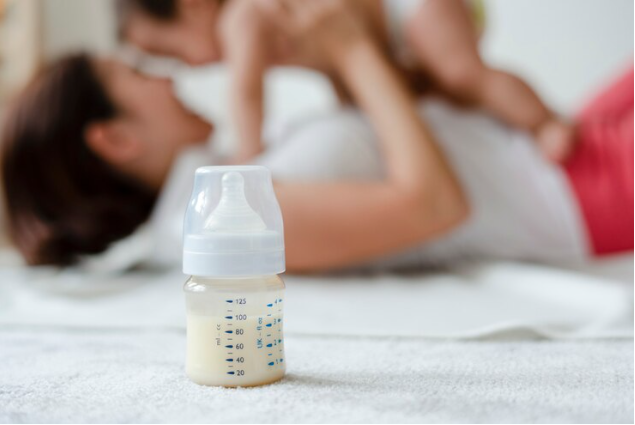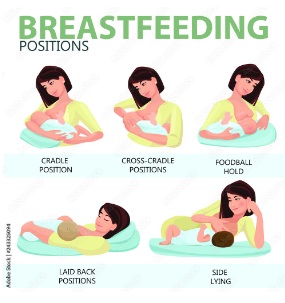- Details
- Category: Feeding time & Weaning
If you need pharmacological treatments (sporadic, for example a painkiller for a temporary illness or medicines for a targeted disease), interventions or health checks, contact your doctor to check their compatibility with breastfeeding, as a small amount of medical principles may pass to your baby through your milk. If you have any doubts about the medicines you are taking while breastfeeding, you may also contact your pharmacy.
In most cases, you will be able to continue breastfeeding your
- Details
- Category: Feeding time & Weaning

Whichever breastfeeding choice reflects your and your baby's needs, try to live this moment serenely, because it is a moment that is rich in emotions, that creates an intense bond, helping you and your baby get to know each other and grow together.
If you need help in the choice of breast-feeding, consult your paediatrician who can welcome and answer your doubts/needs and, if necessary, suggest the milk that best suits your baby's needs. Also be aware that with formula milk:
- you will be
- Details
- Category: Feeding time & Weaning


Breastfeeding
At feeding time, your baby may not latch onto the breast right away, but take time to explore the nipple. in this case you could guide him towards the correct position of his mouth [read more about Breastfeeding: the correct position to attach to the breast] and entice him by letting a few drops of milk come out of the nipple.

The semi-reclined position is of great help when the baby is learning to breastfeed, when he can't latch on to the breast well, or when the mother's
- Details
- Category: Feeding time & Weaning
Dear new mother, breastfeeding should not be painful but comfortable and easy.In the first few days after delivery, when the baby latches on to the breast, you may feel small contractions (stimulated by sucking) that are completely normal because they help the uterus to return to its normal size, a slight discomfort (not pain!!) in the breast, because it is not used to producing and secreting milk, but this sensation usually tends to disappear gradually
If instead of discomfort you feel pain


